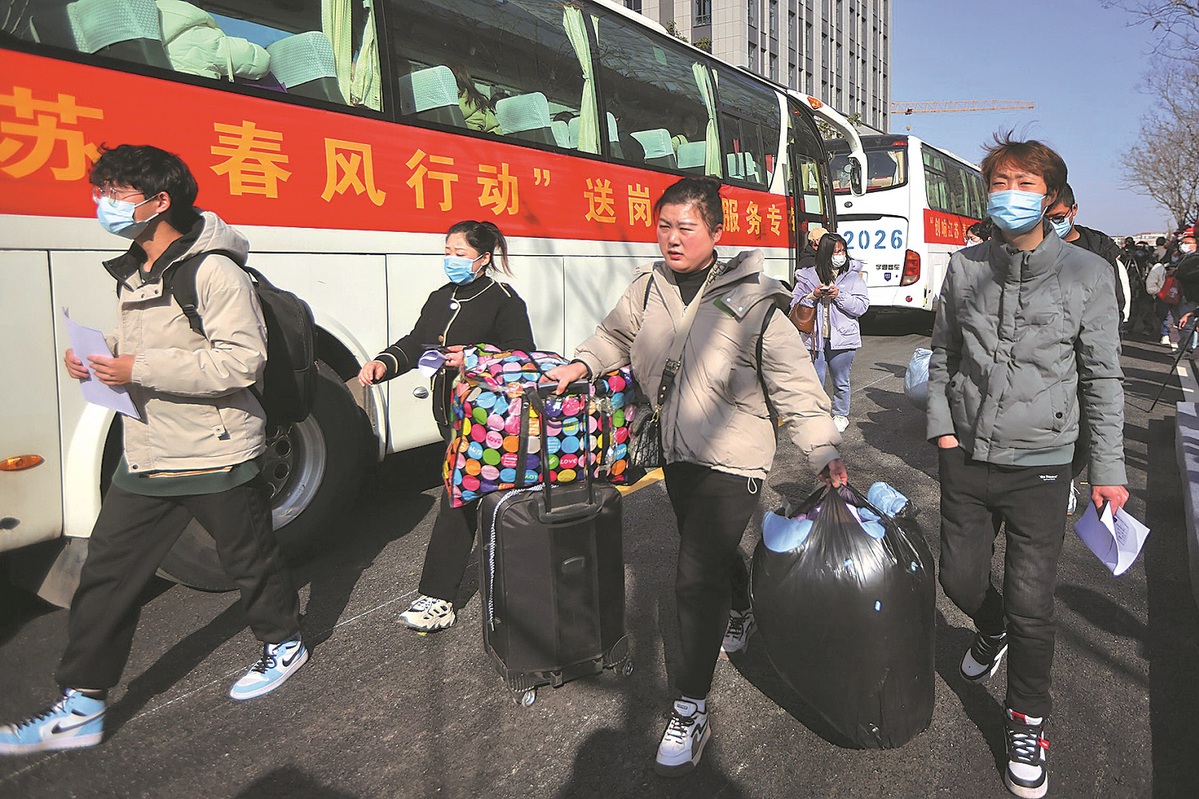How employers make new year work
With millions on the move for Spring Festival, finding workers to fill in over the holiday can be a challenge. Li Menghan and Quan Zhanfu report.


In Shanghai, "shared caregivers" emerged as an interim response. After seeking permission from their employers, live-in caregivers could temporarily offer household management services to another family for a few hours during the day. They got to earn a much higher hourly rate for the extra work, and their existing employers could pay them a bit less while retaining their services at night.
Shanghai also set aside over 100 beds in nursing care homes to meet elderly people's demands over the holiday and increased wages for caregivers. In Shanghai's Changning district, the wage for domestic workers was almost doubled to 80 yuan an hour from the day before Lunar New Year's Eve to the eighth day of the lunar calendar.
As well as playing a role on the demand side of the labor market, China's aging population will also have an impact on labor supply.
Guo said the decrease in the working-age population will inevitably lead to a decrease in overall labor supply, while an older workforce will be less adaptable, "exacerbating the severity of labor shortages".
He said one way to address the issue was to improve the matching of job seekers and vacancies, including holding more recruitment events in areas where labor is relatively abundant.
But it was also important for employers and local governments to retain workers by offering competitive benefits and giving migrant workers better access to public services.
Pang, from the academy of personnel science, said Spring Festival was a turnover period for companies, because after working for a year in a strange city and then enjoying a one-week stay with family members, some people might choose not to return to their jobs. That had led workplaces and some labor-exporting provinces, such as Sichuan, Henan and Shandong, to introduce measures to help migrant workers return to their posts.
Free flights and trains to make it easier for migrant workers to return to work have been arranged for years on some routes. On the morning of Feb 14, the fifth day of the Lunar New Year, a train carrying over 1,400 workers left Sichuan's Dazhou station for Guangzhou, Guangdong province, marking the 26th consecutive year of trains being chartered trains from the Qinba mountainous area. A day later, 364 workers from Yunnan and Guizhou provinces landed in Fuzhou, Fujian's provincial capital, on a chartered flight.
To meet local demands for high-quality workers, Pang said some regions were also attempting to recruit from other cities within the province or other districts within the city.
Lin said that in the future, the Spring Festival employment situation would mainly depend on the push-pull effect between urban and rural areas and the development of the national economy.
"The present human resources shortage remains under control," he said. "Rather than temporary and low-skilled jobs, what is in high demand are positions requiring high qualifications and offering high salaries."
Contact the writers at limenghan@chinadaily.com.cn
























